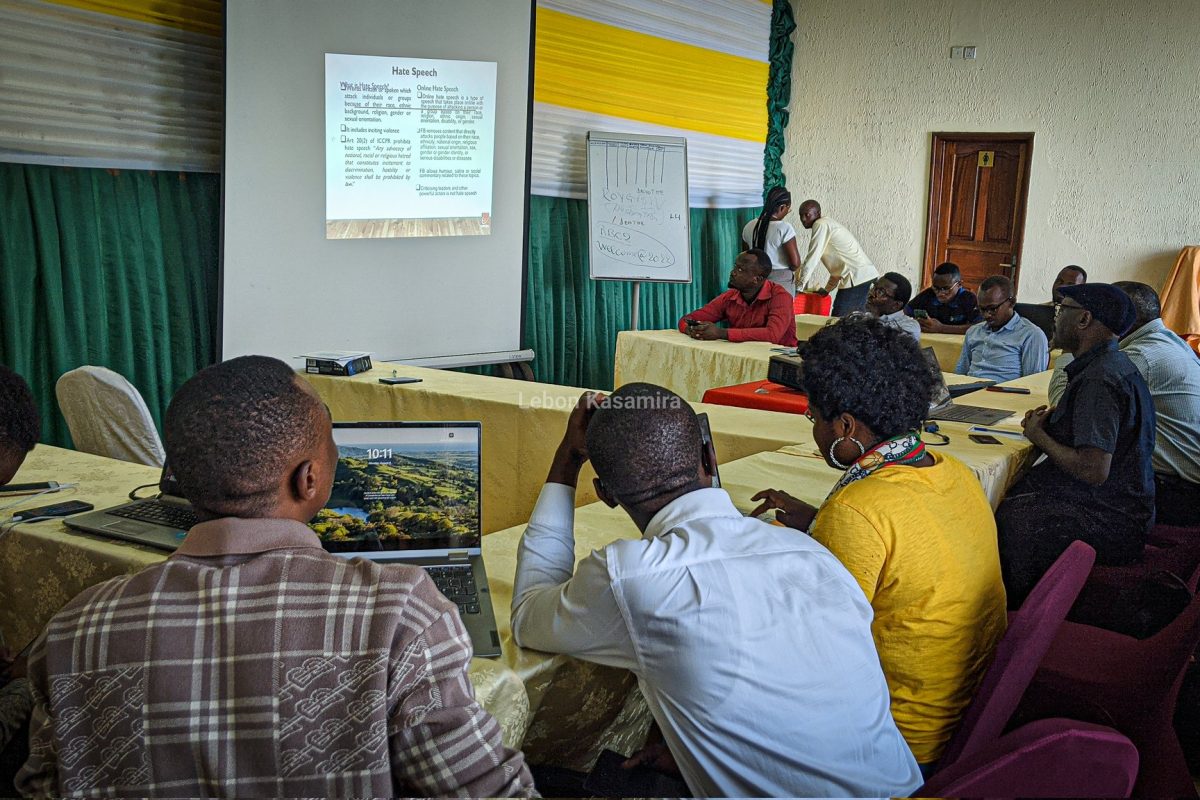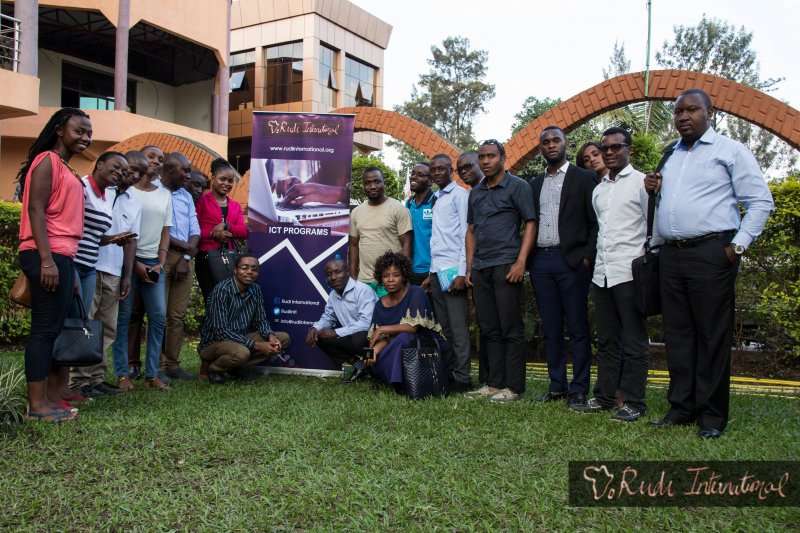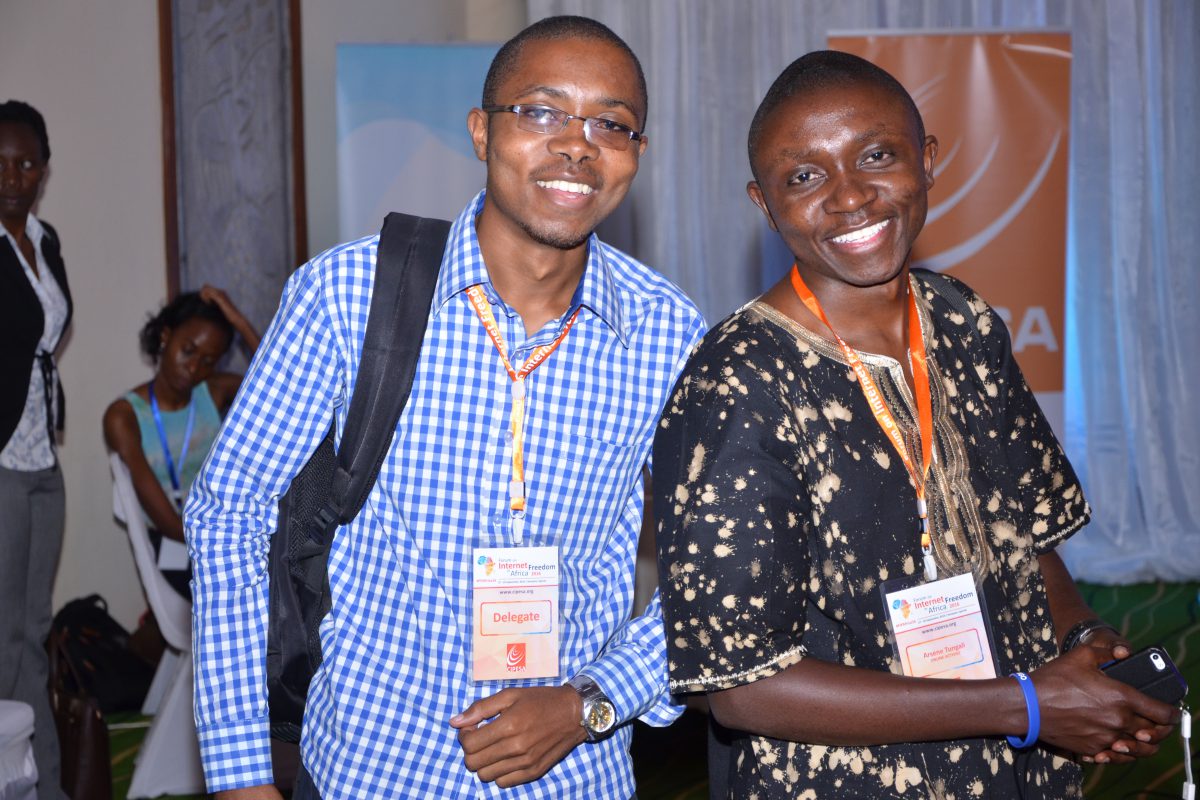By CIPESA Writer |
As disinformation and hate speech intensify during periods of armed conflict and political unrest, journalists can play a critical role in countering falsehoods by providing accurate, unbiased information to the public. Yet, journalists often lack the skills and resources to identify, fact-check, and call out disinformation.
Last month, the Collaboration on International ICT Policy for East and Southern Africa (CIPESA) convened a consultative meeting in Rwanda’s border town of Rubavu for Congolese and Rwandan journalists to discuss how they can play a more effective role in countering disinformation in the conflict between the two countries while providing accurate information in their reporting. The meeting discussed the nature of the disinformation and its key instigators and spreaders, media pluralism, and factual reporting.
The Conflict
In recent months, the governments of the Democratic Republic of Congo (DR Congo) and Rwanda have traded accusations of supporting rebel forces destabilising each other’s country, with disinformation and hate speech taking centre stage in the conflict and fuelling hostilities between the neighbours.
The Congolese government is engaged in armed conflict against the M23 rebel group, which it says is supported by the Rwanda government. A recent United Nations (UN) report corroborated the allegations, indicating that Kigali supports the M23 rebels and other militia operating in the troubled North Kivu province. Rwanda denies the allegations and in turn accuses its neighbour of supporting the Democratic Forces for the Liberation of Rwanda (FDLR) armed rebels that have bases inside eastern Congo from where they purportedly make occasional incursions into Rwanda.
This ongoing conflict has also sucked in the UN peacekeeping force in DR Congo, commonly known as the United Nations Organization Stabilization Mission in the Democratic Republic of the Congo (MONUSCO). There are increased calls for its withdrawal from the central African nation amidst accusations that it has failed to stop the M23 rebel advances and killings by other militia. According to media reports, 36 people including four UN peacekeepers were killed in late July amid protests against MONUSCO.
Information Disorder
The Congolese online space is fraught with calls for a boycott of Rwandan goods and businesses, as well as calls for expulsion of Rwandan nationals. In late May, Congo suspended Rwanda’s national carrier Rwandair’s flights from its territory. The hashtag #RwandaIsKilling trended online in July 2022 as some Congolese citizens and their government accused Rwanda of supporting the resurgence of attacks by the M23 rebels that claim to protect ethnic Rwandans that are native to eastern Congo, especially the Tutsi ethnic group.
The disinformation is particularly pronounced on social networking and sharing platforms such as Facebook, Twitter, and WhatsApp. However, some mainstream media, including private radio and television stations, have played an active role in manipulating information and entrenching hate speech against some members of the Congolese Kinyarwanda-speaking communities and Rwandan nationals.
Yet it is not media actors on one side of the border that are actively promoting disinformation. Journalists and media houses on the Rwandan side were also accused of propagating anti-Congo disinformation, notably that related to the Congolese government’s alleged support for anti-Rwanda armed groups. Often, those who promote the pro-Rwanda narrative are engaged in exchanges with the pro-Congo influencers on social media, with both sides utilising disinformation.
Participants at the Rubavu meeting noted that politicians have been at the forefront of using disinformation to push nationalistic and populist agendas against the Rwandan community living in Congo’s North Kivu and the South-Kivu provinces. As one Congolese journalist explained, “The disinformation and hate speech narratives have been mostly pushed by politicians and this has been done for petty political and personal interests.”
Yet another journalist, who operates from the Congolese city of Goma, noted that some prominent members of the community, “such as religious leaders, influential civil society leaders, and grassroots leaders have also played a major role in peddling and spreading false narratives and fake news.”
Participants also identified political analysts, social media influencers, bloggers, local civic leaders and ordinary citizens, as some of the actors behind the current spate of hate speech and disinformation within the digital space of the two countries.
It was noted that many journalists, both in DR Congo and Rwanda, lacked the capacity to verify the information and had become complicit, knowingly and unknowingly, in spreading disinformation. Furthermore, because most citizens could not easily identify disinformation and tended to believe most information they received through mainstream and social media platforms, fake news was thriving and spreading rapidly.
Nadine Kampire from the Goma-based media network Afia Amani Grands Lacs, said the Rubavu meeting was timely, as fake news and hate speech were rampant on various Congolese and Rwandan social media. It was therefore necessary for journalists to appreciate the extent of the problem, to develop skills in fact-checking, and to build networks for sharing credible information with counterparts across borders.
The Effects
For the residents of Goma and Rubavu, the effects of disinformation and hate speech on regional peace and stability are all clear. The disinformation, escalation of conflict and whipping up of hate speech, have led to a substantial decline in the movement of people and goods and continue to undermine cross-border trade. As a result, this has negatively affected the livelihoods of hundreds of small-scale traders and community members.
Further, the standoff between the two countries has prevented many learners from attending school as they fear crossing the border. Notably, many Rwandans in Rubavu attend schools in the much larger city of Goma across the border.
Fidèle Kitsa, a Congolese journalist working with Star Radio in Goma, noted that hate speech and disinformation have caused negative social, economic and educational consequences within communities in the border towns. He said the price of food and commodities increased, the population has been radicalised, pessimism towards certain information on social media increased, and the peaceful coexistence of the populations in two cities has been harmed. These effects are evident beyond the border towns, all the way to the Congolese capital Kinshasa.
| The tension is palpable, even here in the capital [Kinshasa] where we really see acts of xenophobia between the Congolese and Rwandans all day long. All it takes is one click, one video, one publication and it can quickly go viral, because in our minds, our subconscious, the information is there. We are just waiting for something to trigger it. – Dandjes Luyila, Journalick, CongoCeck |
A Rwandan editor summed up the effects: “The rampant spread of fake news, political propaganda, and hate speech across social media and through the mainstream media has breached trust and the social relationship between the communities living on both sides of the border.”
Recommendations
At the end of the meeting, a number of recommendations were made that can help to stem the spread of disinformation in DR Congo and Rwanda.
Journalists:
Journalists:
- Abide by ethical standards that promote accuracy, fairness, and objectivity in the coverage of news.
- Fact-check every piece of information before disseminating it.
- Provide news and information in an unbiased way.
- Actively promote peace and security.
Media development agencies:
- Hold regular training on fact-checking for journalists.
- Provide small grants to support journalists to pursue in-depth stories on the ongoing conflict in the region as a way of providing accurate information to the public.
- Enhance collaboration between journalists within the East and Central African region. This includes the creation of a regional association of journalists and media professionals.
- Support media initiatives that are working towards identifying and fighting disinformation and fake news.
- Support fact-checking initiatives for journalists.



